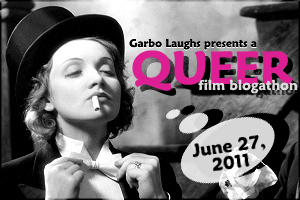Lisa Frankenstein (2024, directed by Zelda Williams). I'm sure the name came first. Surely screenwriter Diablo Cody thought of the play on "Lisa Frank" and tailored a Lisa Frank-inflected Gothic to suit the name? I can't imagine it started with the story. The title is too big a cultural illusion. There are plenty of films where this was the order of operations in their creation, including at least one great one. Cody denies that this is the case. She says that this is just a coincidence, that the genesis of the film is as a distaff reworking of Weird Science. Maybe that's true. I have a suspicious nature. Cody is certainly capable of writing stories of great sophistication. Juno and Young Adult are both layered, complex character studies underneath the hipster dialogue that made their screenwriter famous. That's not this film, alas. This is a ramble-y nostalgia piece. It's so savvy about its time and influences that one can't help but be suspicious about its provenance. It has its pleasures, sure. It's just...if you're not a specific kind of viewer, one raised at the right time and in the right place, one steeped in a specific kind of culture from the late 1980s, then this film is kind of a mess.
Sunday, April 28, 2024
A Retro Prometheus
Posted by
Vulnavia Morbius
at
5:07 PM
0
comments
![]()
Labels: 2024, comedy, films by women, Gothic, horror, horror comedy, Lisa Frankenstein
Saturday, April 13, 2024
Favorite Stars in B-Movies Blogathon 2024: Graylisted
It is easy in film critic land to ascribe the shape and form of most films to an overriding artistic impulse on the part of the filmmakers, but this is only true in a small number of films. Most films are at the mercy of social and commercial forces that are well outside the control of directors, producers, and even studios. Back in the day, B-films were particularly susceptible to these forces. The function of these movies was to make money, after all, not plumb the depths of the human condition. If they sometimes managed to exist as actual art, it was often entirely accidental. Whatever their artistic aspirations may be, most of the people who do the nuts and bolts work of making a film are there because it's a job. This includes actors, who may appear in films for entirely mercenary reasons. There are plenty of B-movies starring A-list actors or directed by A-list directors who for one reason or another needed a paycheck at the time. It's a cruel twist of fate that Michael Caine couldn't accept his first Oscar in person because he was busy making Jaws 4: The Revenge. Caine got a lovely house out of the deal, or so he says. The commercial and social pressures on the art of movies were especially strong in the late 1940s and early 1950s, when making a living in movies often depended on one's politics.
For example:
In the 1930s and early 1940s, Edward G. Robinson was one of the cinema's biggest stars. He was principally known for playing gangsters, co-equal with James Cagney as an attraction in such roles. He was also able to expand into more varied roles where he played against the tough guy image. There is a wide gulf of difference between Caesar Rico Bandello in Little Caesar and the morally righteous insurance investigator, Keyes, in Double Indemnity or the henpecked and pussy-whipped artist, Chris Cross, in Scarlet Street. He had a broad range, which was often ignored by the studios who cast him. His range was certainly ignored by Warner Brothers where he made his breakthrough films. They cast him in a long succession of gangsters and tough guy parts. When Robinson was entertaining the troops on a USO tour during World War II, he found he got no response from the GIs unless he started his bits with an in-character speech by Rico, Little Caesar himself, before speaking as himself as a strident anti-fascist. The real Robinson was an intellectual, a famed art collector, a lion of the Hollywood Left, and an immigrant Jew. He put his money where his convictions were, too, donating to over 800 left wing and anti-Nazi and anti-fascist organizations in the 1930s. He was among the first big stars to make openly anti-Nazi films, starring in Confessions of a Nazi Spy well before the United States entered the war. After the war, he agitated for racial equality in the workplace and campaigned for civil rights. But no good deed goes unpunished.
Posted by
Vulnavia Morbius
at
2:38 PM
5
comments
![]()
Labels: Black Tuesday, blogathons, classic film, Edward G. Robinson, film noir, Illegal, Nightmare (1956), politics, The Glass Web, Tight Spot, Vice Squad (1953)
















